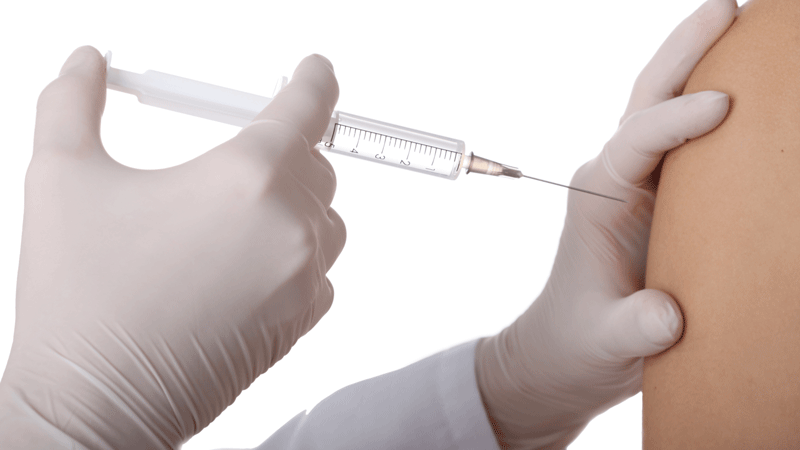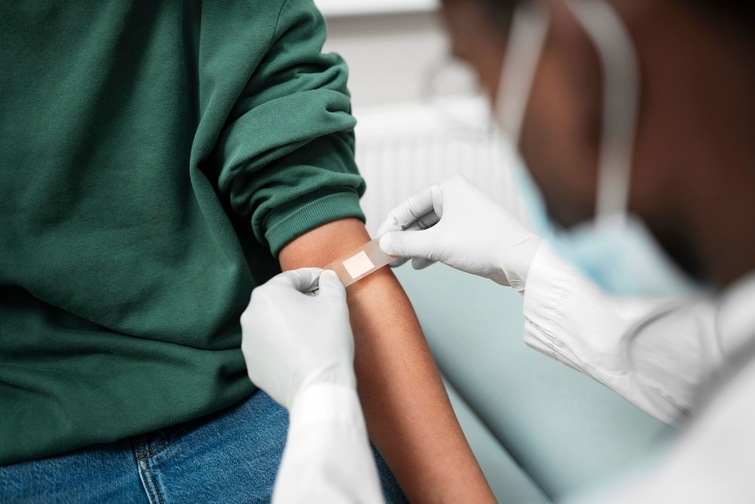
Staying up-to-date with vaccinations is crucial for maintaining your health and well-being. Tetanus, a potentially life-threatening bacterial infection, is one vaccine-preventable disease that should never be ignored. Centers for urgent care in Danbury, CT, can provide timely and convenient access to tetanus shots, ensuring you stay protected. But how do you know when to roll up your sleeves and get vaccinated?
The tetanus shot is a preventive vaccine against tetanus, a serious infection that affects the nervous system and can be life-threatening. This vaccine, containing the tetanus toxoid, is administered to individuals of all ages at various life stages to stimulate the immune system. If exposed, promoting the production of antibodies prepares the body to fight off the Clostridium tetani bacteria. The vaccine is usually given via a thin needle in the upper arm or thigh and can be part of a combination vaccine, including other protections.
Tetanus shots encourage the body’s immune system to recognize and combat the tetanus bacteria effectively. Upon receiving the vaccine, the body generates antibodies specifically tailored to identify and neutralize the Clostridium tetani bacteria, preventing them from causing illness. Including inactivated bacteria within the vaccine ensures safety, eliminating the risk of inducing the disease it aims to protect against. This method underscores the importance of vaccination in preventing tetanus, reinforcing the body’s defenses against potential infection.
When it comes to preventing tetanus, various vaccines are available, tailored to different age groups and health needs. Understanding these options is crucial, especially for those seeking care at urgent care in Danbury, CT.
The DT vaccine is primarily administered to babies and children under 7 years of age. This shot protects against tetanus and guards against diphtheria, another serious bacterial infection.
For babies and children, the DTaP vaccine is a common choice. It offers protection against tetanus, diphtheria, and pertussis (whooping cough). This combination vaccine helps children build immunity to these diseases early on.
As individuals age, the Td vaccine from reliable urgent care in Danbury, CT, becomes the preferred choice. It focuses on protecting tetanus and diphtheria, which remain significant health concerns.
The Tdap vaccine is recommended for older children, teenagers, and adults. Alongside safeguarding against tetanus and diphtheria, this vaccine also offers protection against pertussis, commonly known as whooping cough. This is particularly important to prevent the spread of this contagious respiratory disease.
Tetanus, also known as lockjaw, is a severe bacterial infection that affects the nervous system and causes muscles throughout the body to tighten. Tetanus is caused by the bacterium Clostridium tetani, which is commonly found in soil, dust, and animal feces. The bacteria produce spores that can remain inactive in the environment for years until they enter the human body through wounds or cuts. Once inside, they can produce a toxin that interferes with normal muscle contractions, leading to the characteristic symptoms of tetanus.
Tetanus is an acute disease characterized by widespread muscle stiffness and spasms, which can lead to serious health complications if not treated promptly and effectively. Understanding the symptoms and risks of tetanus is vital for early detection and treatment.

Understanding the common causes and entry points for these bacteria is crucial for prevention and ensuring timely medical intervention.
For individuals in Danbury, CT, understanding these common causes is essential. In case of exposure to such risks, seeking immediate care at urgent care in Danbury, CT, for wound assessment, cleaning, and possibly a tetanus shot, is vital for prevention. Urgent care in Danbury, CT, is well-equipped to handle such emergencies, providing timely interventions to prevent tetanus infections.
Tetanus shots are crucial to preventive healthcare, providing immunity against the potentially fatal tetanus infection. Knowing when to get a tetanus shot from urgent care in Danbury, CT, can significantly reduce the risk of developing tetanus.
If you suffer a deep or dirty wound and your last tetanus shot was more than 5 years ago, you may need a booster dose. This is particularly important for wounds susceptible to tetanus bacteria, such as puncture wounds, burns, and severe cuts.
For immediate wound care and tetanus vaccinations, urgent care in Danbury, CT, offers accessible and prompt services. They can assess the wound, provide necessary cleaning and treatment, and administer a tetanus shot.
Urgent care in Danbury, CT, plays a vital role in tetanus prevention, especially in the case of injuries that could lead to infection. Reputable facilities of urgent care in Danbury, CT, like DOCS Urgent Care – Danbury are equipped to evaluate injuries, administer tetanus shots, and offer advice on wound care and prevention strategies. They provide a convenient option for those needing immediate medical attention without the wait times associated with emergency rooms.

While tetanus shots are a crucial part of preventive healthcare, it’s equally important to recognize situations where individuals should avoid receiving the tetanus vaccine.
Individuals who have previously experienced a severe allergic reaction to the tetanus vaccine or any of its components, known as anaphylaxis, should refrain from further vaccination. Between 1.6% and 5.1% of the United States population has experienced anaphylaxis and alternative vaccination options should be explored in consultation with a healthcare provider from urgent care in Danbury, CT.
Neurological Complications: Individuals with a history of neurological disorders that occurred following a tetanus vaccine should exercise caution or avoid additional doses. A comprehensive assessment by a healthcare provider from reputable urgent care in Danbury, CT, is essential to evaluate the connection between the vaccine and neurological issues and make informed decisions.
Regardless of whether a fever is present, individuals battling moderate to severe illnesses may need to delay tetanus vaccination until they fully recover. Minor illnesses, such as a common cold, typically do not necessitate postponing vaccination.
Preventing tetanus is essential to protect yourself and your loved ones from this potentially life-threatening bacterial infection. Tetanus prevention primarily involves vaccination, proper wound care, and awareness of potential risks.
Here are crucial tips on how to prevent tetanus:
Proper wound care is essential in preventing tetanus, as the tetanus bacteria can enter the body through cuts, punctures, burns, or contaminated wounds.
Tetanus can lurk in environments and situations where the tetanus bacteria, Clostridium tetani, thrives. Being aware of high-risk situations can help you take necessary precautions:
Maintaining good personal hygiene and cleanliness is an important aspect of tetanus prevention.
Tetanus shots from urgent care in Danbury, CT, are generally safe, with minimal side effects. The most common side effect is mild pain or redness at the injection site. Serious side effects are rare. Allergic reactions are possible but extremely uncommon. If you experience severe side effects, seek medical attention immediately.
While tetanus vaccinations are highly effective, there is still a small risk of infection after vaccination. However, the severity of the disease is usually reduced in vaccinated individuals. It’s crucial to stay up-to-date with booster shots every 10 years at your local urgent care in Danbury, CT, to maintain immunity and minimize the risk of tetanus.
Tetanus is not contagious and cannot be transmitted from one person to another. It is caused by introducing tetanus bacteria into a wound from the environment, not through person-to-person contact. The bacteria typically thrive in soil and dust, and infection occurs when they enter the body through open wounds or cuts. Tetanus is a result of environmental exposure rather than human-to-human transmission.
Tetanus primarily affects humans, but it can also affect animals, with horses and livestock being more commonly affected. The tetanus bacteria can enter an animal’s body through open wounds or injuries, similar to how it affects humans. Urgent care in Danbury, CT, offers vaccination for animals. Additionally, practicing proper wound care for animals and maintaining a clean and safe environment can significantly reduce the risk of tetanus in livestock and pets.
After receiving a tetanus booster shot at urgent care in Danbury, CT, immunity typically lasts for ten years. It’s important to track when you last received a tetanus shot and schedule boosters accordingly to maintain protection against the disease.
Tetanus is a preventable yet serious bacterial infection that demands our attention. By understanding the importance of tetanus vaccinations, proper wound care, and tetanus awareness, we can safeguard ourselves and our loved ones. Staying up-to-date with vaccinations and seeking urgent care in Danbury, CT, when needed is paramount.
For Danbury, CT, residents, DOCS Urgent Care – Danbury is a reliable resource for prompt medical attention and tetanus prevention. Remember, staying protected against tetanus is not just a responsibility; it’s a commitment to your well-being. Don’t hesitate to visit DOCS Urgent Care – Danbury for expert care and vaccination services. Contact us today!



During this surge in COVID-19 cases, our primary focus is meeting the high demand for tests, and we are seeing higher than usual wait times. This means we are unable to answer most phone calls. Please know that our teams are working very hard during this time to care for as many patients as safely as possible. Please click the button below for answers to common questions. We appreciate your understanding.